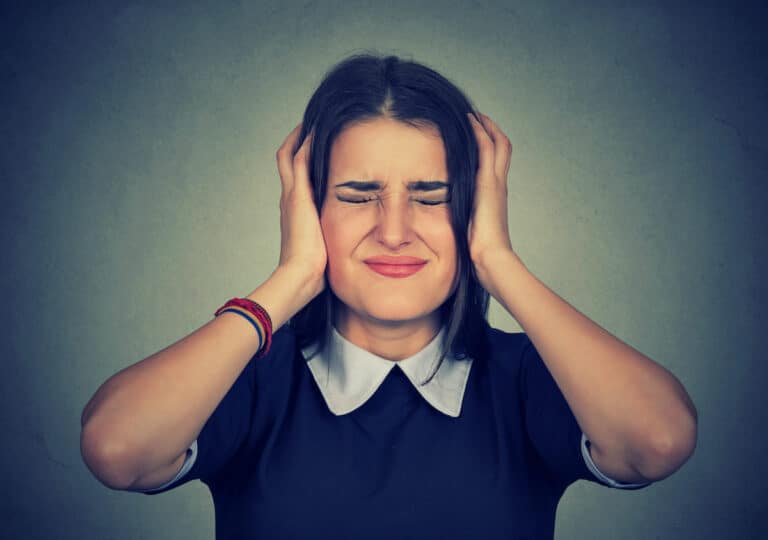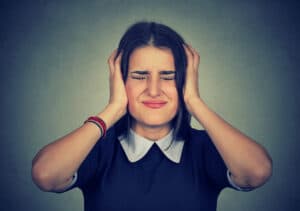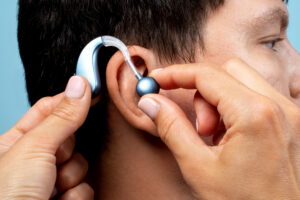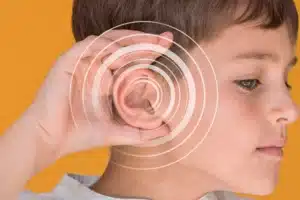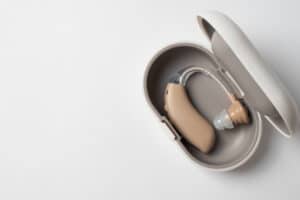If you’ve ever experienced a ringing or buzzing sound in your ears, you may have tinnitus. Tinnitus is a condition where a person hears sounds that are not present in the external environment. Tinnitus prevention is crucial to avoid developing this condition. In this blog post, we will discuss what tinnitus is, how it is developed, the factors that affect it, and who are the usual people who develop it. We will also share some tips for preventing tinnitus to protect your ears from damage and how to start tinnitus Treatment in New York.
What is Tinnitus and How is it Developed?

Tinnitus is not a disease but rather a symptom of an underlying condition. It can be described as a ringing, buzzing, hissing, or humming sound in the ears. Tinnitus can be experienced in one or both ears and can be intermittent or constant. There are two types of tinnitus: subjective and objective. Subjective tinnitus is the most common type and can only be heard by the person experiencing it. Objective tinnitus is rare and can be heard by a doctor during an examination.
Tinnitus is often caused by damage to the auditory system, which includes the ear, the auditory nerve, and the brain. Exposure to loud noises, ear infections, and certain medications can damage the auditory system and cause tinnitus. Head and neck injuries, cardiovascular disease, and neurological conditions can also lead to tinnitus.
Factors that Affect Tinnitus
Tinnitus is a complex condition that various factors can influence. In addition to age, gender, and genetics, there are several other factors that can affect tinnitus.
Loud Noises
One of the primary factors that can contribute to tinnitus is exposure to loud noises. Prolonged exposure to sounds over 85 decibels (dB) can damage the sensory hair cells in the inner ear and lead to tinnitus. This is why people who work in loud environments, such as construction workers, factory workers, or musicians, are at a higher risk of developing tinnitus. Similarly, attending loud concerts, using headphones or earbuds for long periods, or participating in recreational activities such as shooting or hunting can also lead to tinnitus.
Ear Infections
Ear infections or injuries to the head or neck can also cause tinnitus. These conditions can affect the auditory nerve or other structures of the ear and lead to tinnitus as a symptom. Certain medications, such as antibiotics, aspirin, chemotherapy drugs, and diuretics, can also cause tinnitus or make existing tinnitus symptoms worse. In some cases, the underlying medical condition that requires the medication can also cause tinnitus.
Psychological Factors
Psychological factors can also play a role in tinnitus. Stress, anxiety, depression, and other emotional disorders can exacerbate tinnitus symptoms. In some cases, people with tinnitus may become distressed or anxious about the condition, leading to a vicious cycle where the stress and anxiety worsen the tinnitus, leading to even more stress and anxiety.
Cardiovascular Conditions
Cardiovascular conditions, such as high blood pressure or poor circulation, can also contribute to tinnitus. Reduced blood flow to the inner ear can cause damage to the hair cells and lead to tinnitus symptoms. Additionally, smoking and excessive alcohol consumption can increase the risk of developing tinnitus and worsen existing symptoms.
Who are the Usual People who Develop Tinnitus?
People who are exposed to loud noises, such as construction workers, musicians, and hunters, are at a higher risk of developing tinnitus. People who have a family history of hearing loss or tinnitus are also more likely to develop the condition. Individuals who have cardiovascular disease or high blood pressure are also at risk of developing tinnitus.
TINNITUS PREVENTION TIPS
Tinnitus prevention involves taking care of your ears and avoiding exposure to loud noises. Here are some tips for preventing tinnitus:
TIP #1 – Limit Your Exposure to Loud Noises
Protecting our ears from loud noises is crucial to prevent hearing damage and reduce the risk of developing tinnitus. Here are some ways to protect your ears from loud noises:
- Wear earplugs designed for noise reduction.
- Use protective headphones or earmuffs when exposed to loud noises.
- Keep a safe distance from loudspeakers or amplifiers.
- Turn down the volume on headphones, speakers, or other audio devices.
- Take breaks when exposed to loud noises for an extended period.
- Be mindful of noisy activities and wear protective headphones or earplugs.
- Use noise-canceling headphones to reduce the need for high volume.
- Avoid listening to loud music for extended periods.
- Choose quieter modes of transportation, such as walking or biking, instead of driving with the windows down.
- Avoid noisy environments when possible.
TIP #2 – See Your Ear Doctor Regularly
Regular check-ups with your ear doctor can help identify any potential issues with your auditory system before they lead to tinnitus or other hearing problems.
TIP #3 – Limit Stress and Fatigue
Stress and fatigue can worsen tinnitus symptoms in many people. When we are stressed or fatigued, our bodies produce more cortisol, which is a hormone that can cause inflammation and damage to the auditory system. This can lead to increased tinnitus symptoms, including ringing, buzzing, or other noises in the ears.
In addition to the physical effects of cortisol, stress and fatigue can also worsen tinnitus symptoms by affecting our mental and emotional state. Many people with tinnitus report feeling anxious, depressed, or frustrated by the constant noise in their ears. When we are stressed or fatigued, these negative emotions can become more intense, leading to a vicious cycle where the stress and anxiety worsen the tinnitus, leading to even more stress and anxiety.
Stress and fatigue can also interfere with our ability to sleep, which can worsen tinnitus symptoms. Many people with tinnitus report that their symptoms are more pronounced at night when the environment is quiet and there are no distractions. When we are stressed or fatigued, it can be harder to fall asleep and stay asleep, which can exacerbate tinnitus symptoms and lead to a poor quality of life.
TIP #4 – Practice Proper Ear Care
Clean your ears regularly but gently to avoid damaging the delicate structures in your ears. Avoid using cotton swabs or other objects to clean your ears, as they can push earwax further into your ear canal and cause damage.
Consult an Audiologist in Westchester Today

At Listen Hear Diagnostics, we are dedicated to helping our patients maintain healthy hearing and supporting tinnitus prevention. If you are concerned about your hearing health, contact us today to schedule a consultation. We offer a full range of audiology and hearing care services to meet your individual needs and help you hear clearly and without strain. Our office is open to all patients in Westchester, NY, and our experienced audiologists are here to help you achieve optimal hearing health.

